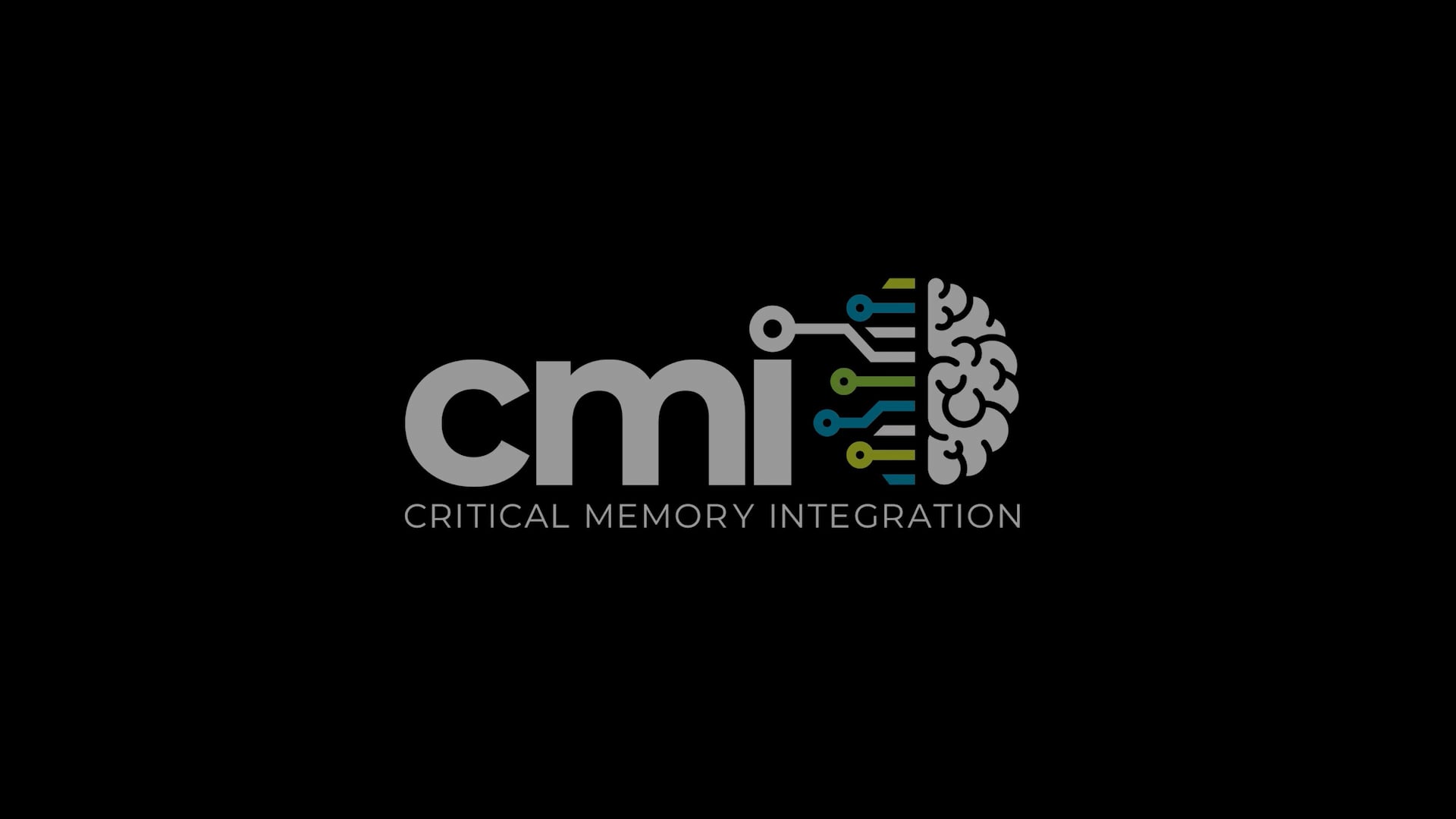Register Now For A Free CMI™ Information Session - Get Started

INFORMATION SESSION
Getting to the Core: Critical Memory Integration
Our Free CMI™ Information Session covers the basics of Critical Memory Integration & available learning paths. Register now & get started today:
View past Information Sessions on the ARISE YouTube Channel.

CMI™ Information Session Outline
Critical Memory Integration (CMI™) is a process-driven experiential approach that develops the therapist’s clinical skills and emotional availability for client attunement.
- Introduction to Critical Memory Integration
- Learning Path of the Courses
- Question & Answer
- Resources
About CMI™

CMI™ Live Information Session Schedule
Available via Zoom, view our upcoming live webinar schedule:
- WED 02.05.25: 11am EST – What is the evidence for CMI?
- WED 03.05.25: 11am EST – What kind of therapy is CMI?
- WED 04.02.25: 11am EST – Who is a good fit for CMI?
- WED 05.07.25: 11am EST – How does CMI fit with other therapies?
- WED 06.04.25: 11am EST – What are Critical Memories?
Trainee Testimonials
Presented By
About Estefana Johnson LCSW
Estefana Johnson is a Licensed Clinical Social Worker and trauma therapist. Johnson started her career in mental health in 2001 as a Behavioral Health Technician. She has worked in various roles and settings including residential treatment with at-risk youth and medical social work.
Her professional experiences in community mental health, along with personal cultural challenges as a first-generation child of immigrants, have shaped her understanding of and connection with people and continues to influence her therapeutic approach.
Who Can Benefit from CMI™ Training
Designed for Clinicians by Clinicians.
Critical Memory Integration (CMI™) is designed for and has been implemented by mental health clinicians, including counselors, psychiatrists, psychologists, and social workers. CMI™ is structured to place the individual’s presenting and emerging concerns at the center of the therapeutic endeavor. As a result, clients feel heard and validated, and therapists can fill the role of empathic witness who is a partner in their healing journey and values their experience.
CMI™ was designed to be used with individuals who present with diagnoses of anxiety, depression, stressor- and trauma-related disorders, eating disorders, problems in relationships, and personality disorders.

Critical Memory Integration (CMI™) Frequently Asked Questions
What is Critical Memory Integration™?
Critical Memory Integration (CMI™) is a comprehensive therapeutic system that uses science-based mind, body, and memory approaches to guide individuals toward optimal mental wellness. CMI™ helps individuals understand their reactions as adaptive responses to life’s difficulties rather than viewing mental health challenges as illness. Through CMI™, clients explore their relationships with emotions and experiences to enhance their sense of self. CMI™ techniques help clients gain insight to integrate critical memories, leading to a healthier nervous system, increased agency, and improved well-being.
How is CMI different from other approaches?
Many therapies today fall into the category of “cognitive-behavioral therapies,” or CBT. CMI™ differs from CBT in many ways. Where CBT targets thinking and behavioral patterns as the leverage points for change, CMI™ is an experiential approach that privileges sensations and emotions as a means to initiate meaningful changes. CMI™ is also designed to support the therapist as a person within the therapeutic relationship.
What would make a person a good fit for CMI?
Individuals who recognize patterns in their thinking, behaviors, or interactions with others that they want to change are ideal candidates for CMI™. CMI™ requires a willingness to explore sensation and emotion responses as a source of important information. The CMI™ clinician supports the individual in expanding their capacity for emotion and exploring the individual’s experiences.
Can this treatment only be used to target specific trauma?
Critical memories do not need to be traumatic to influence us. Very important experiences can often be processed to help individuals renew their stories. These experiences can be processed with CMI™ in support of different therapeutic approaches.
Is CMI a technique I can weave into modalities I currently use, or is it a stand-alone treatment?
The CMI™ training is designed to provide clinicians with the knowledge and skills to use CMI™ as an independent treatment modality. Many CMI-trained therapists seamlessly integrate CMI™ techniques within other treatment modalities they typically use.
How effective is CMI™ across diverse populations?
CMI™ is well positioned for diverse populations because it focuses on the individual’s experience and how they form their sense of self.
Is there any research on the effectiveness of CMI™?
The mechanisms of CMI™ are informed by the evidence base found across other treatment modalities and the most recent neuroscience findings on memory, emotions, and self-concepts.
What is a typical CMI™ session like?
How long does a typical CMI™ session last?
CMI™ is flexible in how it may be deployed. An intervention can be as short as 20-30 minutes or as long as an hour.
What is the typical number of sessions?
CMI™ does not require a minimum or maximum number of sessions. While the CMI™ process can be facilitated within one session for a specific issue, the process of self-discovery is ongoing. It’s typical for individuals to engage in around 6 sessions of CMI; however, some individuals may need more or fewer sessions to achieve their goals.
What kind of homework do clients need to do with CMI™?
Although the CMI™ protocol does not include written homework, the clinician might suggest some skill practice, such as exploring emotions or practicing self-compassion.
Interested In Learning More?

Attend A Free Information Session
Speak with a member of the Clinical Development Team
- Critical Memory Integration (CMI™) webinar provides you with valuable insight into the course.
- CMI™ webinar helps determine if you are a well-qualified candidate for the course.
- CMI™ webinar can help answer your questions and provide additional clarity.


